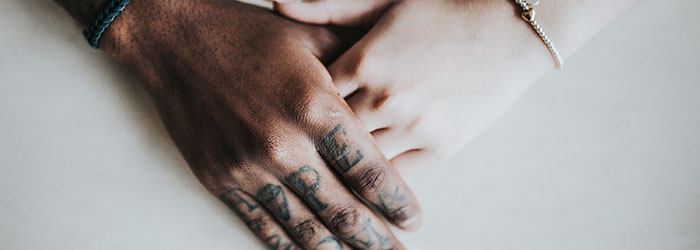The Incredible Power of Sharing Our Recovery Stories
More often than not these days, my eating disorder feels like a distant memory. I have to think really hard to put myself back in my own shoes. It was only five years ago that my entire life revolved around bingeing and purging and starving and drinking (and then bingeing and purging and starving and drinking), and yet that life feels so foreign to me now. Which is an incredible privilege. And a huge victory. I struggled for nearly a decade with anorexia and bulimia. It infected every corner of my life by the time I crashed and burned my way into treatment. And now, I can barely see a scar.
Don’t worry. This isn’t an essay about how great I am, or how well I’m doing, or how recovery is a beautiful, flexible, gray-area-filled process (it is). It’s not even a “Keep fighting, kiddo! You can do it, too!” pick-you-up (but do keep fighting, kiddo. You can do it, too). It’s more of a reflection on the strange, public shape my recovery has taken and the incredible power of sharing our recovery stories.
One year ago, in partnership with Yuri Baranovsky and HLG Studios, I released BINGE, a dark comedy pilot inspired by my decade-long journey with bulimia. BINGE is raw and crass and pretty damn “in your face.” We decided to embrace the ugly truth and lean into the ickiest parts of the illness instead of sugarcoating it or trying to make it more socially acceptable. I knew it was triggering, but I also knew it was my truth. And I had no idea how the internet would receive it. At best, we hoped a few thousand people might watch it and at worst, I expected an inbox full of hate email.
What happened was beyond what I ever could have imagined.
Within an hour of releasing the pilot on YouTube, the emails started flooding in. Women, men, adults, and young teens from all over the world reached out to me. Something about the vulgar and comedic way we approached the illness resonated with them. And it wasn’t just people struggling with eating disorders. I received emails from alcoholics and autistic individuals, from people struggling with homelessness and borderline personality disorder and depression and drug abuse. For the first time in many of their lives, they felt seen. They felt validated. They felt connected to a community and they felt humanized.
Again, this isn’t an essay patting myself on the back. I’m proud of BINGE, but I don’t think it’s the be-all-end-all of content about mental illness. It’s just that our community is so deeply underserved by the media that we are starving (heh heh) to see ourselves reflected authentically on screen. Anything that feels remotely truthful is a revelation!
Suddenly, by sharing my story so publicly, I found myself thrust into an advocacy position. I found myself reconnecting with the recovery community, getting involved in round-table discussions, sponsorship programs, and sharing my story over and over and over again. I thought I was recovered, but the more I share my story, the stronger and more vibrant my recovery becomes.
We need to tell our stories. Not only for ourselves and for our own healing, but for our sisters and brothers who are struggling in silence. Whether it’s on a podcast, on your blog, to a friend or a stranger in a coffee shop, at a sermon in your church, at an AA meeting, or on this very website, when you feel you are in a safe and healthy place, share your story. It matters. Telling your truth has ripple effects like you’ll never know. Friendships will deepen. Connections will grow. And your commitment to your health and your future will be stronger than ever.
I want to hear your story. I hope you’ll share it!
Content Warning: if you are struggling with an eating disorder, please know that the content of BINGE can be triggering. If you are in recovery, check with your doctor before watching.
For recovery resources and treatment options, please visit our resource center. If you or someone you know is struggling with an eating disorder, call ANAD’s Helpline at: (888) 375-7767 or the National Alliance of Eating Disorders Helpline at: (866) 662-1235.
If you are thinking about suicide, call or text the National Suicide Prevention Lifeline at 988. In crisis situations, text “NEDA” to 741741 to be connected with a trained volunteer from the Crisis Text Line.
You can watch the Pilot episode of BINGE, and the prequel short film THE BLIND GIRL at bingetheseries.com.
BINGE is crowdfunding to make a full first season! Text BINGE to 474747 to get involved!





